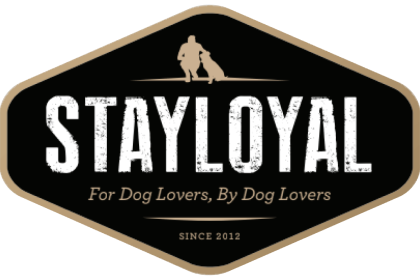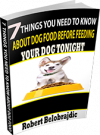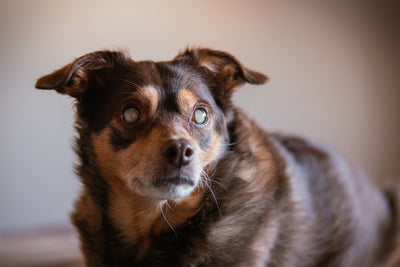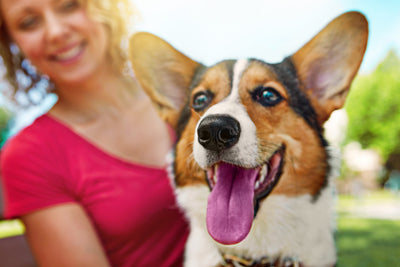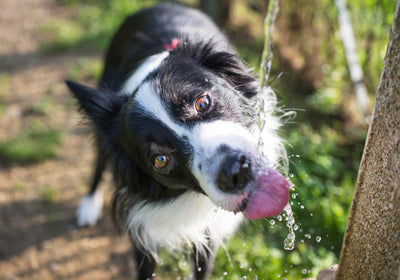Human Snacks Your Dog Shouldn’t Eat
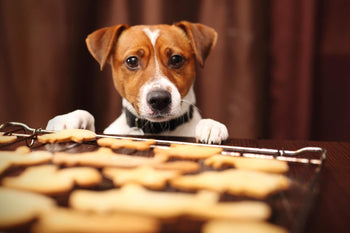
I talk a lot on the Stay Loyal blog about all the good things you can give your dog that will help boost her health and maybe even keep her around for a few extra years. But there is another side to that coin – the things that your best friend shouldn’t be eating to keep them healthy and happy. While we humans often like to express our love through food, there are treats that – while tasty – are best left to humans. Here is a list of common foods that you should avoid feeding to your dog.
Sugary Snacks
This is a wide, broad category that includes many different types of treats. Cake, donuts, fruit candies, chocolate, ice cream – to name a few. If it’s got a lot of sugar, don’t feed it to your dog. Their system has a hard time processing sugar and therefore they can go into insulin shock much easier than humans.
Snacks with Artificial Sweeteners
Since we said no sugar, you may think it’s okay to give him a drink of that diet soda or cake made with an artificial sweetener such as Xylitol. However artificial sweeteners are not good for dogs either. Aspartame can cause stomach upset in dogs, though it’s not lethal. Xylitol is lethal. It causes your dog’s blood sugar to drop, seizures and death. Those that do survive often have irreversible liver damage. Just 100 mg/kg of Xylitol can affect your dog; a couple pieces of gum can kill a small dog.
Beware! Peanut butter, a treat many of us give our dogs, can contain Xylitol.
Snacks High in Fat or Salt
Peanut butter brings us to fatty snacks. It’s best to not feed your dog things that are high in fat. He already gets the amount of fat he needs in his daily diet, so anything extra can add pounds and affect his health. Especially a small dog. Steer clear of fatty foods and if you need to use peanut butter for medication, for example, do so sparingly. Mixing with water to dilute it is a great way to get the peanut taste dogs love, without tons of extra calories and fats. Aside from peanut butter, other fatty treats would include butter, bacon, cheese, etc.
Alcohol
While it might sound fun to let your dog share your beer with you while you watch sports, alcohol causes damage to the liver, kidneys and nervous system. Just like humans, dogs can get alcohol toxicity and since many dogs are much smaller than us, it doesn’t take much. And don’t forget that alcohol is found in things other than beverages. Dogs have even been known to get sick eating too much fermented foods, due the alcohol content. Be sure your dog can’t get into your mouthwash, rubbing alcohol or other cleaners either.
Foods and Drinks with Caffeine
Like alcohol, caffeine is another substance that is can cause harm quickly to a dog because of their size. The symptoms of caffeine overdose in dogs is varied, but can include:
· Restlessness
· Vomiting
· Abnormal heart beat
· Elevated body temperature
· Tremors
· Seizures
· Fainting
· Death
As you can see, it has some bad affects. It’s best to just steer clear of caffeine.
Onions
This one may surprise you, since onions are safe for us, but they pose a real threat to your dog. Onions cause hemolytic anemia, where the hemoglobin in the red blood cells are oxidized and form clumps. They can even burst. This can happen with onion in any form – powdered, fried, cooked in soups or raw. 32 grams can make a 9kg dog sick.
Nuts
You may assume that since your dog can eat peanut butter, all nuts are safe. These are not often see on dogs “do not eat” lists, but they should be. These can definitely cause issues to your dog. Each nut affects dogs in slightly different ways.
· Macadamia nuts can cause pancreatitis and upset stomach. They also contain a mycotoxin related to neurological problems.
· Walnuts can cause obstruction or intestinal upset. They also contain a mycotoxin related to neurological problems.
· Pecans can cause obstruction or intestinal upset. Mouldy pecans can cause seizures or neurological issues.
· Pistachios can cause pancreatitis and upset stomach.
· Almonds are not easily digestible by dogs and can cause stomach and intestinal upset.
In additions, nuts are very high in fat, which also makes them not the best choice as a treat for your dog.
The main thing is to be sure you always read the ingredients of anything you are giving your dog that is not a one-ingredient item. For example you know what’s in a carrot, but you might not know what’s in a carrot and beef stew you think is safe. When in doubt, it’s better for your dog to stick to his food and one-ingredient treats such as carrots and meaty bones. If you are unsure something is safe, like a vegetable that you think would be nutritious for your dog, ask your vet before feeding. A quick call to the vet’s office might save your dog’s life.
